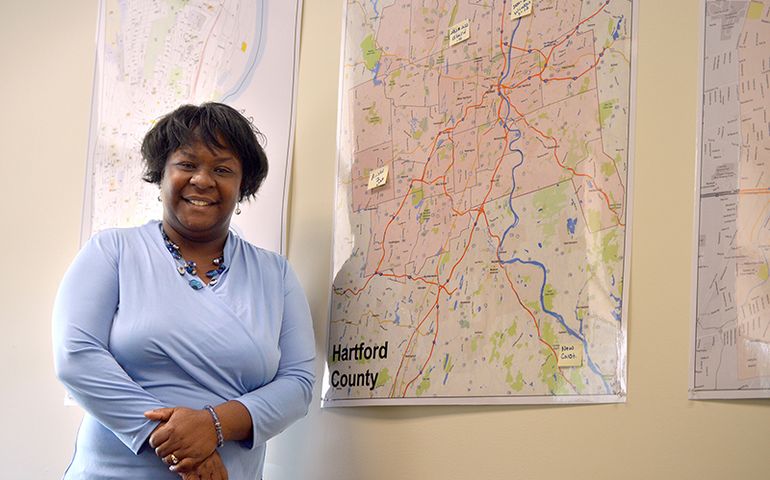Processing Your Payment
Please do not leave this page until complete. This can take a few moments.
-
News
-
Editions
-
- Lists
-
Viewpoints
-
HBJ Events
-
Event Info
- 2024 Economic Outlook Webinar Presented by: NBT Bank
- Best Places to Work in Connecticut 2024
- Top 25 Women In Business Awards 2024
- Connecticut's Family Business Awards 2024
- What's Your Story? A Small Business Giveaway 2024 Presented By: Torrington Savings Bank
- 40 Under Forty Awards 2024
- C-Suite and Lifetime Achievement Awards 2024
- Connecticut's Health Care Heroes Awards 2024
-
-
Business Calendar
-
Custom Content
- News
-
Editions
View Digital Editions
Biweekly Issues
- April 29, 2024
- April 15, 2024
- April 1, 2024
- March 18, 2024
- March 4, 2024
- February 19, 2024
- February 5, 2024
- January 22, 2024
- January 8, 2024
- + More
Special Editions
- Lists
- Viewpoints
-
HBJ Events
Event Info
- View all Events
- 2024 Economic Outlook Webinar Presented by: NBT Bank
- Best Places to Work in Connecticut 2024
- Top 25 Women In Business Awards 2024
- Connecticut's Family Business Awards 2024
- What's Your Story? A Small Business Giveaway 2024 Presented By: Torrington Savings Bank
- 40 Under Forty Awards 2024
- C-Suite and Lifetime Achievement Awards 2024
- Connecticut's Health Care Heroes Awards 2024
Award Honorees
- Business Calendar
- Custom Content
Habitat for Humanity’s Moody seeks to revitalize Hartford neighborhoods
 HBJ Photo | Sean Teehan
Hartford Area Habitat for Humanity CEO Karraine Moody has increased the organization’s focus on property rehabilitation and neighborhood development.
HBJ Photo | Sean Teehan
Hartford Area Habitat for Humanity CEO Karraine Moody has increased the organization’s focus on property rehabilitation and neighborhood development.
More Information
When Karraine Moody talks about the first time she volunteered at a Hartford Area Habitat for Humanity site, it’s with a palpable sincerity.
She was a freshman at Trinity College and signed up with Habitat’s Trinity chapter to work at one of the nonprofit’s build sites. Volunteering was nothing new to Moody, whose parents instilled in her a strong sense of civic duty via community service. But something about Habitat’s mission really spoke to her.
“Going to that house that Saturday morning, we were painting, and we were working really hard, but I felt like it was such a great mission,” Moody said. “I said, ‘Wow, this is great, [someone is] going to purchase this home, and their family’s going to be situated.’ This is an opportunity for someone to really take that next step.”
More than 20 years later, and after a detour in corporate human resources, Moody is chief executive of the nonprofit, a position she’s held since 2014. Under her stewardship, Habitat Hartford has moved increasingly in the direction of rehabbing blighted properties, rather than just new construction, she said. And in coming years, she wants the organization to be seen not only as a home-placement agency, but also as a financial independence driver and a potent partner in neighborhood redevelopment.
After college, Moody worked in HR for United Technologies Corp. Dealing with people in that capacity aligned with her empathetic nature; it was also where she got her first taste of management.
Her first assignment was to organize a take-your-child-to-work day for employees at all of UTC’s divisions.
“[My boss] said, ‘There’s your budget, you work it out, each division is different, … but we need one cohesive full event for a full day,’” Moody recalled. “It was a beautiful event, everybody raved about it, it was just like my whole creative juices were used, and from there it was like, ‘what else can I do?’ ”
Redevelopment force
Moody left corporate America in 2005 to join Habitat Hartford as director of family services.
The nonprofit’s approximately $5.5 million annual budget is spent placing families earning between $36,000 and $55,000 in houses they pay for through an interest-free mortgage.
Hartford Habitat vets about 100 applicants each year to assess their ability to pay a mortgage (i.e. income and rental and credit history) and need. Beneficiaries are also required to provide 150 hours of “sweat equity” by working on Habitat sites, or other community service.
Most who apply don’t qualify for a loan, Moody said, a fact that bothered her when she took over as CEO of the 20-employee operation.
“We used to be able to say, ‘OK, you don’t qualify, but you can go here to get some help,’ but due to funding and changes in the nonprofit world, a lot of those organizations and resources closed,” Moody said.
That’s why she started the Financial Freedom Center in 2017. This Habitat initiative offers free financial guidance to people trying to qualify for a Habitat home, but whose debt, credit history or other factors bar them from receiving a mortgage, Moody said. While the goal is to qualify them for a home, those who don’t reach that goal can still greatly improve their financial standing.
Moody has also come to see the organization as a force for improving Hartford’s neighborhoods. She has made it a point to include at least a few rehabs in the 10 to 15 projects Habitat Hartford starts each year.
In early 2019, for example, Moody said families moved into two rehabbed houses in Hartford’s North End. Hartford Habitat also renovated houses in the city’s Asylum Hill neighborhood, which helped turnaround a South Marshall Street block.
The nonprofit’s vetting process allows it to make sure people moving into the newly renovated homes are invested in maintaining their value and a thriving neighborhood, Moody said.
Over the next few years, a lot of Habitat Hartford’s efforts will go toward acquiring and rehabbing homes in North Hartford, an area Moody said is ripe for neighborhood redevelopment. As she plans ahead, she still genuinely takes to heart the motto she heard that first day she painted a house on a job site as a college student.
“Habitat is a hand-up, and not a hand-out,” she said.
Karraine Moody
CEO, Hartford Area Habitat for Humanity
Highest level of education: Master’s degree in organizational management, University of Phoenix, 2005
Executive philosophy: “I like to be a collaborator. So, I really want everyone at the table to really feel like they own it, and to bring everyone together for that common goal.”
Mrs. Moody thanks so much for all you do for the families and the various communities within the City of Hartford. Your dedication to the families speaks volumes and I know several families that are excited to be apart of owing their own home. I believe having individuals take part by providing sweat equity is awesome. From new to rehabbing blighted properties Hartford is really looking great and families are feeling proud of where they live thanks to your leadership and Habitat our communities are flourishing.
Dear Ms Moody Why Can't Sec 8 be a Part of Habitat for Humanity because its hard finding a Home in the Neighborhood we often at times have to look elsewhere and some time that means out of Hartford right now iam looking for a Place and its hard to find Michelle Garrett. garrettmichelle44@gmail.com

2022 Giving Guide
This special edition informs and connects businesses with nonprofit organizations that are aligned with what they care about. Each nonprofit profile provides a crisp snapshot of the organization’s mission, goals, area of service, giving and volunteer opportunities and board leadership.
Learn more
Subscribe
Hartford Business Journal provides the top coverage of news, trends, data, politics and personalities of the area’s business community. Get the news and information you need from the award-winning writers at HBJ. Don’t miss out - subscribe today.
Subscribe
2024 Book of Lists
Delivering Vital Marketplace Content and Context to Senior Decision Makers Throughout Greater Hartford and the State ... All Year Long!
Read Here-
2022 Giving Guide
This special edition informs and connects businesses with nonprofit organizations that are aligned with what they care about. Each nonprofit profile provides a crisp snapshot of the organization’s mission, goals, area of service, giving and volunteer opportunities and board leadership.
-
Subscribe
Hartford Business Journal provides the top coverage of news, trends, data, politics and personalities of the area’s business community. Get the news and information you need from the award-winning writers at HBJ. Don’t miss out - subscribe today.
-
2024 Book of Lists
Delivering Vital Marketplace Content and Context to Senior Decision Makers Throughout Greater Hartford and the State ... All Year Long!
ABOUT
ADVERTISE
NEW ENGLAND BUSINESS MEDIA SITES
No articles left
Get access now
In order to use this feature, we need some information from you. You can also login or register for a free account.
By clicking submit you are agreeing to our cookie usage and Privacy Policy
Already have an account? Login
Already have an account? Login
Want to create an account? Register
Get access now
In order to use this feature, we need some information from you. You can also login or register for a free account.
By clicking submit you are agreeing to our cookie usage and Privacy Policy
Already have an account? Login
Already have an account? Login
Want to create an account? Register






2 Comments